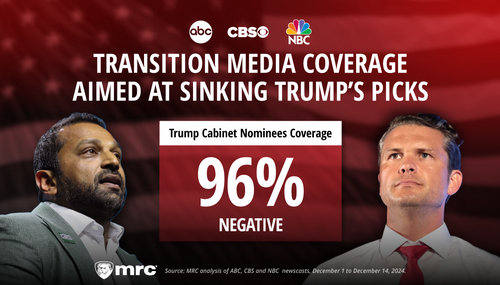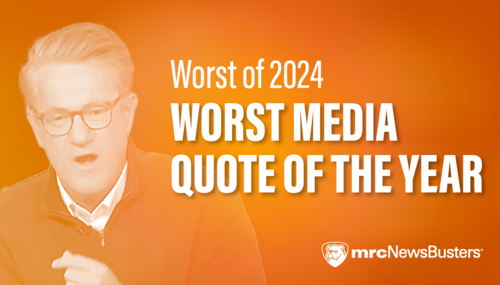"Hi, Billy Mays here!"
Unfortunately we won't be able to hear Billy Mays say that again in person but that recorded line is destined to live on for as long as there are people. The untimely death of Billy Mays inspired numerous accolades from around the country including this tribute video, one of many that you can find on YouTube. However, in contrast to the almost universal admiration of Mays, there was one discordant note sounded on the opinion page of the Christian Science Monitor in the form of this sneering column written by one Darryl Campbell. You can almost hear the elitist condescension dripping as Campbell looks down his haughty nose at Billy Mays:
It's almost impossible to go a full day without hearing the words "Hi, Billy Mays here" at least once. For over a decade, Billy Mays pitched everything from laundry detergents to Mighty Putty, Hercules Hooks to health insurance, to the television-viewing public. He was neither an inventor-salesman like Ron Popeil nor a celebrity endorser like Suzanne Somers; instead, he used his talent for working a crowd and an infinite capacity for shouting (he insisted that it was "projecting") in order to become the best-known and by far the loudest practitioner of the old-school hard sell.
He succeeded in spite of the cookie-cutter ads and the questionably useful devices and chemicals he peddled, simply because he understood how to turn an infomercial into something more visceral, almost subliminal. Before Mr. Mays, no one worried too much about their inability to cook minihamburgers four at a time or mount artwork to walls without a hammer and nails. But after a few seconds of watching housewives struggle with these esoteric problems in black and white, there he was to save us from our own ignorance, with a product guaranteed to change our life, available now through this exclusive TV offer for only $19.95. But if you call in the next five minutes...
Sorry, Darryl, but something that Mays pitched like Oxiclean that could remove wine stains from carpets is far from a "questionably useful device and chemical."
He spoke to us from sets that featured plain bathroom fixtures and plastic laminate countertops, generic enough to be middle-class and never flashy enough to inspire jealousy (you'd never see him behind a gas stove, for example). In other words, Mays offered not just a product but an entire life of do-it-yourself, business-casual, suburban ease. For two minutes at a time, he all but dared us to pass up the promise of social mobility embodied in a little plastic gadget or a tub of chemicals.
But the aw-shucks, nice-guy persona, all smiles and shouts, hid a cunning businessman who was fully aware that his persona was every bit a fetish as the trinkets he sold. He bragged that he could sell products even with a completely nonsensical pitch. He had no qualms about the fact that his infomercials air constantly on children's networks, but he did regret that he didn't get paid enough for one of his first major promotions. And even though he appeared in every major TV market in the United States and in nearly 60 countries worldwide at hundreds of exposures a week, he said he was "just beginning" and pledged to take his business "to another level."
So he became a strange hybrid – half reality television star, half professional huckster. On the one hand, he depended on us for our silent validation, for his own celebrity status, without which he would just be some random salesman. On the other, he promised that acquiring superfluous junk could be a ticket to a better life, even at a time when that life seems to be slipping further and further out of reach for so many of us.
One has to wonder if Darryl Campbell even does his own cleaning. People that have to do so wouldn't so cavalierly write off labor saving items as "superfluous junk."
In the end, his single-minded devotion to salesmanship made Mays endearing despite the bellowing and the emphatic gestures, and despite the distasteful sides of his advertising career. He gave himself so completely to the world of infomercials that it's hard to picture his life without his uniform, without his voice, without a product in hand, but most of all, without the attention of his audience.
A look at the tribute video (2:17 mark) clearly shows that Billy Mays, satirizing himself when ordering fast food, was hardly the one-dimensional caricature that Campbell is attempting to paint of him. Perhaps Daryll Campbell, currently studying for a PhD in history at Notre Dame, should try doing some pitchman work (what he calls a
"huckster") to get himself better rooted in reality.
Your humble correspondent at many points in his own checkered career has worked as a pitchman, selling everything from helicopter kites to car babies (devices to transmit cell phone calls through the FM car radio) to blue blocker sunglass knockoffs, and even Jesus night lights, among other things, at shows, carnivals, car races and many other venues all around the country and it provided quite an education about the people of this nation that you probably won't get in a college classroom. Oh, and I'm not the only one who noticed the condescending demeanor of Campbell. John Stossel of ABC's "20/20" also noted it in his blog:
Smug journalists just cannot accept capitalism. Mays sold “as seen on TV” products like OxiClean detergent and Mighty Putty; products that he believed in and backed with a money-back guarantee. And people apparently loved the products, since Mays sold an estimated billion dollars worth of goods. He enriched himself by persuading people to voluntarily give him money. His customers got goods they hadn’t known they'd wanted. In practicing capitalism, Mays was more of a “public servant” than the regulators who claim to serve us by restricting it.
Well said, John. Oh, and one other thing...
"Hi, Billy Mays here!"




